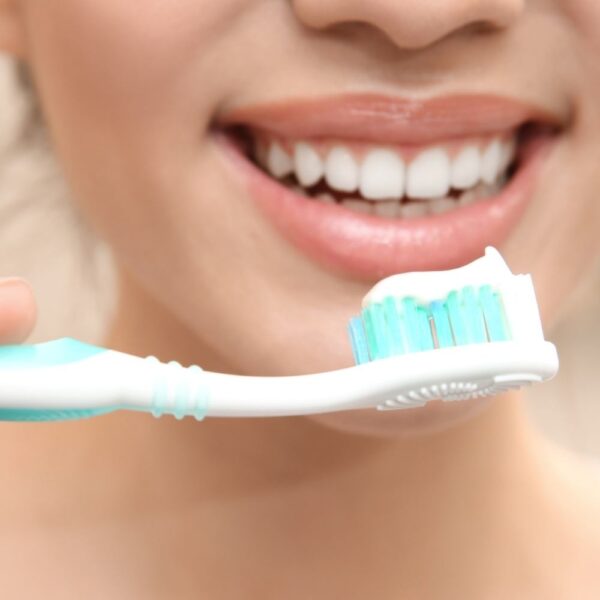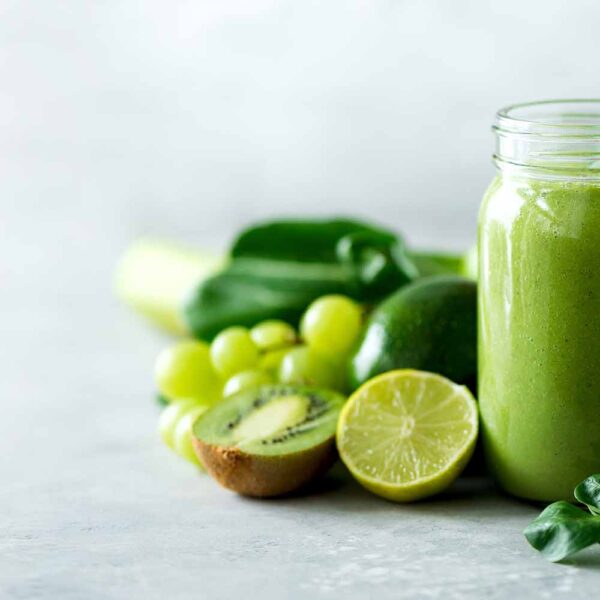All About Probiotics
What part of our body weighs around 3kg and has the ability to affect our emotions?
You’d be right if you said it was the weight of bacteria we carry around in our gut. No wonder the gut is called “the second brain”. Probiotics, live bacteria and yeasts which are good for us has become a central theme in health circles in the past decade as more and more health professionals realise the immense importance of gut flora and the part they play in everything from digestive issues, to skin, hormones, brain function and many other aspects of health. Scientists have even discovered that an imbalance in gut bacteria plays an important part in the development of autoimmune conditions, metabolic syndrome, diabetes, chronic fatigue and non-alcoholic fatty liver disease.
As a human being, you are only 10% “you”. All the rest of your genes are supplied by bacteria living in and on you making up the other 90%. Our own cells are outnumbered 10 to one by microscopic organisms which are ‘other’ than ourselves and yet crucial to our existence. We also each have our own unique “bacterial fingerprint” or combination of the many different microbial species and strains which exist and colonise our bodies; no two people have the same combination of species. This group of microorganisms is known as the “microbiome” and it inhabits every nook and cranny of our bodies and without which we could not survive. Ageing, antibiotics, medication, unhealthy diet and stress all disrupt the delicate balance in our microbiome, sometimes with devastating effects.
Human beings have a symbiotic relationship with their bacteria and probiotics help these relationships.
Symbiosis is where two or more organisms live in a close relationship:
There are three kinds of symbiosis:
Commensalism:
where two or more organisms live together but neither benefits from the other and neither is harmed by the other.
Mutualism:
This is where two or more organisms live together – each derives benefit from the other, and neither can survive without the other.
Parasitism:
Here only one of the two organisms benefits (the parasite), the other organism (the host) experiences actual harm.
All three associations exist within our bodies and it is vitally important that a correct balance is maintained between the groupings so that they all co-exist in harmony where for example the ‘good’ bacteria keep the parasitic bacteria and yeasts in check. We often don’t associate a seemingly isolated problem with the gut, but what we eat and the balance of our flora determine our state of health and it can sometimes be as simple as that.
Skin
An imbalance in the levels of gut bacteria can create inflammation in the skin which is our largest organ and disrupt its protective barrier. Microbes present on our skin are there to protect its integrity, prevent infection and guard against infections and moulds. A healthy diet together with an appropriate balance of bacteria will ensure a radiant skin. Acne, rosacea and various other skin complaints are often completely resolved when a course of probiotics is taken together with an improved diet. Often people with small intestinal bacterial overgrowth (SIBO) are 10 times more likely to have skin problems. Eczema may be provoked by a specific neuropeptide produced in the gut, Substance P, which is typically brought about by severely altered gut flora. Digestion is also affected, stomach acid is reduced (causing the ‘bad’ bacteria in the gut to proliferate) and nutritional deficiencies created all of which significantly affect skin health. The best way to encourage healthy bacteria and prevent an imbalance is to avoid sugar, excess dairy, grains, all processed food and fruit drinks. In other words a low carbohydrate diet.
Mother’s Milk
It’s common knowledge that natural birth is far healthier than C-Section when we are talking about the infant’s microbiome. A natural birth inoculates a baby with bacteria as he passes through the birth canal and this allows his gut to be colonised with a host of beneficial bacteria. The C-Section baby on the other hand will have to rely on those who handle him at birth and he will receive far fewer species and strains than if a natural birth had taken place. Breast feeding a baby will also provide much-needed healthy and protective gut bacteria and a natural probiotic. Later on, once a mother stops breastfeeding, the baby’s ability to produce more strains and species of bacteria found in adults becomes enhanced.
Because gut bacteria produce various nutrients, vitamins and short-chain fatty acids for the host (you), it’s important to have the correct strains in the right amount to influence positively mental health, intellect, a healthy metabolism, enhanced immune function and optimum digestion. What you eat affects your bacteria – for better or worse. Think of bacteria as a bunch of children – those fed junk food continuously will end up lazy, overweight, irritable and difficult. Those fed with good healthy food will be more calm, concentrate better and their grades will be higher than the lazy ones. It’s much the same in our digestive systems – we promote the growth of the health-enhancing bacteria by eating a variety of fresh, real food, and suppress the unwanted bacteria by avoiding the foods they thrive on such as sugar, processed foods, grains, sodas, excess alcohol etc. Bacteria have been shown to change accordingly as the diet changes – in as little as a few short hours change can begin.
Poor digestive function is responsible for up to 90% of doctor visits, and is often the source of more serious health issues. While there are various factors involved in healthy digestive function, everything you eat has to be digested, and unless your gut flora and digestive processes are working well, your health will be compromised.
There are various categories of healthy bacteria in the gastrointestinal tract: mainly Bifidobacteria, Bacteroides and Eubacterium. Others include Lactobacilli, Streptococci and Peptococci amongst hundreds of others. You don’t have to remember all these of course, but they should be present to aid digestion plus protect us from viruses and bacterial infections. There is so much to say about probiotics and the various species it requires a book rather than an article, that’s how varied, interesting and important these amazing bacteria are. However, here are some key species you may want to look for next time you buy a probiotic supplement.
Bifidobacterium longum: 32 different species belong to this class of probiotics. It’s one of the very first species to colonise our bodies at birth, and quite important for preventing infant diarrhoea. Apart from making the lactose in milk easier to assimilate, it also boosts immunity, prevents food allergies, maintains healthy LDL cholesterol levels, keeps the digestive tract functioning well and is even known to control anxiety while guarding against cancers.
Bifidobacterium lactis: you’ll often find this strain in yogurt, known for its beneficial effect on immunity and digestion while destroying Salmonella which may lurk in some foods. The Bifidobacterium species as a whole offer improved blood sugar control, reduced liver inflammation, and even reduced DNA damage which could lead to malignant cell development. We underestimate the enormous power of maintaining a healthy body through beneficial bacteria instead of having to deal aggressively with problems when they manifest later. It really is so much easier to prevent disease this way than to treat it.
Lactobacillus brevis: this is an interesting one for banters as sauerkraut and pickles (proper ones, not sugar-laden ones) owe much of their efficacy to this bacterium which proliferates in these products. It is extremely effective in fighting vaginosis, increasing immune response and enhancing killer T cell activity. It even enhances a brain growth hormone!
Lactobacillus plantarum: like brevis this is found abundantly in cultured foods like kimchi and sauerkraut and is one of the most beneficial of all bacteria. Some of its functions include controlling inflammation of the digestive system, regulating immunity, fortifying the lining of the gut and fending off potential invaders which would compromise the integrity of the intestinal lining. You’ve heard of Leaky Gut Syndrome? Well this is one of the most important bacteria for reducing gut permeability and helping to heal or prevent leaky gut. In healing the gut, food allergies usually disappear too. Another strain, Lactobacillus casei, found in the mouth and intestines, is also found in fermented vegetables, meats, pickles and cheeses, and is one of the probiotics instrumental in the production of the starch-digesting enzyme amylase.
Lactobacillus acidophilus: this is the one you are probably most familiar with, and is also found in yogurt. It plays the role of keeping the good and bad bacteria in balance, prevents infection and helps to combat Candida albicans overgrowth, a yeast infection most commonly experienced by women. It is known to help keep LDL cholesterol levels down; very often raised LDL cholesterol is due to poor gut bacteria, so if yours is disproportionately raised and you’re concerned, you might want to take a good probiotic daily.
Lactobacillus salivarius: as a strain is extremely effective against Helicobacter pylori, a bacterium which lives in the stomach and may cause ulcers, sometimes cancer, and many other digestive ailments. Conditions like bloating, bad breath, diarrhoea and indigestion may all hinge on your not having enough of this strain.
Probiotics have also been used in cancer treatment to suppress pro-carcinogenic bacteria. They bind to and promote excretion of potential carcinogens, decrease the enzymes associated with the development of tumours and suppress inflammation. Healthy bacteria are able to inhibit the metabolic pathways of numerous diseases from obesity to infection to cancer. Sadly the type of lifestyle of too many people today is one which fosters a severely compromised bacterial balance, is it any wonder we are facing the diseases we are?
Obesity
Diabetes, insulin resistance, obesity, metabolic syndrome – could it be that something as simple as a balance of healthy bacteria could assist in treating these conditions? Some studies suggest this is possible, but it won’t hurt to have fermented foods, probiotic supplements and improve your diet – it could just be the missing piece of the puzzle for you if you have a health issue.
Some thoughts:
- Antibiotic abuse has led to disastrous gut bacteria imbalance and more antibiotics are fed to animals in their feed today than are given to humans to combat infection.
- Infant formulas instead of mother’s milk may interfere with the bacterial balance in a baby
- Obsessive hygiene, trying not to allow any bacteria on our skin, or near our children, prevents us from naturally acquiring healthy bacteria from the environment. We even need to be exposed to bad bacteria from the environment so that our gut can communicate with our immune system about these organisms thereby enhancing our immune function in general. It has recently been shown that children raised in homes with dishwashers have weaker immune systems than those whose plates are washed in kitchen sinks (and therefore not as clean!).
- An unhealthy, processed diet has caused a rise in pathogenic bacteria – there’s a rise in Firmicutes – bacteria associated with SIBO (small intestinal bacterial overgrowth) and obesity – a shift can be measured in as little as one day – how much more when it’s a lifestyle?
- Victims of respiratory infections can significantly influence their immunity by taking good quality, high dose probiotics for around 3-6 months, or in some instances, for life.
Other benefits of well-balanced gut bacteria in an individual would include:
- The breakdown of indigestible fibre from food and production of certain nutrients like short chain fatty acids which actually feed the cells lining the intestine and provide the mechanism of a Probiotic.
- Protection from pathogens and parasites in the gut.
- Immune modulation – considering that 70-80% of the body’s immune system is located in and around the gut which has the biggest surface area in our bodies potentially exposed to the outside world via the things that go into our mouths.
Published with permission from Lose It Magazine – written by Sally-Ann Creed for Volume 9, 2015
You can simply click on the name of each product mentioned above (in bold) and a hyperlink will take you directly to the product for an easy purchase.
Originally published on https://www.facebook.com/SallyAnnCreedSA/ on 22 January 2018.
Instagram: @SallyAnn_Creed
Facebook: @SallyAnnCreedSA







